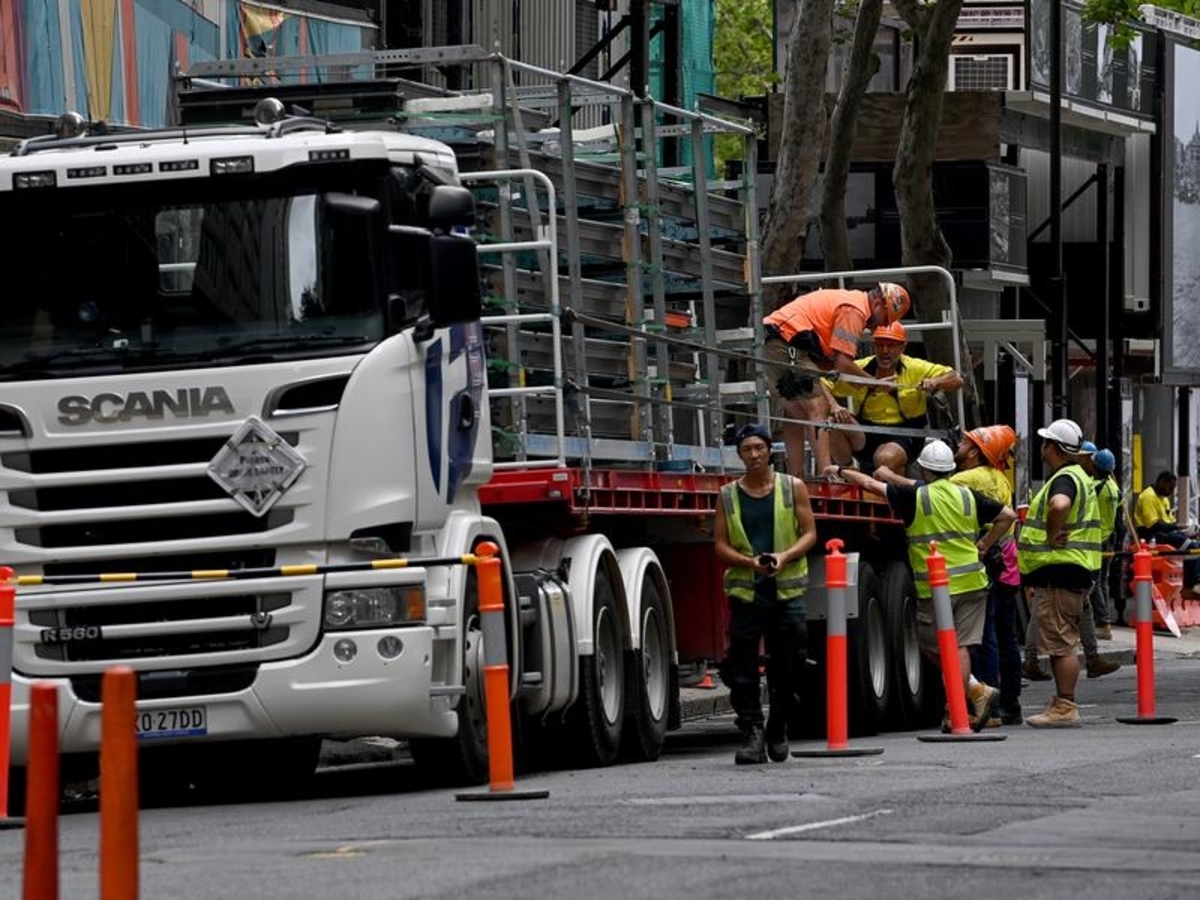
As the nation's leaders slug it out over the outlook for wages, new figures suggest there has been a notable pick-up in people's pay, although it is still lagging well behind the rate of inflation.
Wage growth, particularly for low income earners, has dominated the election battle between Prime Minister Scott Morrison and Labor leader Anthony Albanese this week.
The war of words came as data showed payroll jobs fell 0.3 per cent in the fortnight to April 16 and were down 0.8 per cent over the month due partly to the timing of Easter, but were still up two per cent over the year.
The report also showed payroll wages were up 7.4 per cent on the year, despite also declining in the respective fortnight and month, the Australian Bureau of Statistics said.
KPMG chief economist Brendan Rynne said deconstructing the payroll wage bill, the figures suggest wages growth has accelerated since the end of 2021, consistent with observations made by the Reserve Bank of Australia.
He expects next Wednesday's wage price index - a key indicator used by the RBA and Treasury - will see the annual rate close to three per cent as of the March quarter, up from 2.3 per cent previously.
"A notable step-up from recent results but still off the pace with regard to inflation, meaning real wage erosion is still happening," Dr Rynne said.
Inflation surged to 5.1 per cent in the March quarter, the highest level in more than 20 years.
The payroll jobs data provides a guide to next Thursday's key labour force report for April, which will come just days out from the May 21 polling day.
The RBA now expects the jobless rate to fall to 3.75 per cent by June and to 3.5 per cent in 2023, the lowest level in almost 50 years.
The current unemployment rate sits at four per cent.
Such expected strength in the jobs market is backed by continued brisk demand for workers.
New figures from online platform SEEK showed job advertisements rose by a further 2.9 per cent in April, marking the fourth consecutive month of record postings.
"We would traditionally expect a decline in job ad growth over the Easter period, yet this year continues to buck all trends with job ads again reaching record levels," SEEK ANZ managing director Kendra Banks said.
With such apparent buoyancy in the labour market, Treasurer Josh Frydenberg is keen to keep the election focus on the economy as opinion polls point to a change of government.
"The most important issue at play here is who is better able to manage the economy," Mr Frydenberg told ABC television on Thursday.
"Who do you trust to keep taxes low, to create more jobs and, of course, to encourage and enhance small businesses?"
Small businesses appear to have already made up their minds, with a new survey showing three-quarters of respondents predict a change of government on election day.
The survey by financial software provider MYOB found just a quarter of small- and medium-sized enterprises believe a change to Labor will have a negative impact on their business.
Whoever comes out on top on polling day, two-thirds of the 1000 SMEs surveyed list reducing the compliance costs of running a business as their most important business-related issue.
"Specifically, post-election SMEs would like a simplified GST/BAS reporting process and a proportion of government procurement contracts allocated to smaller businesses," MYOB's Helen Lea said.







